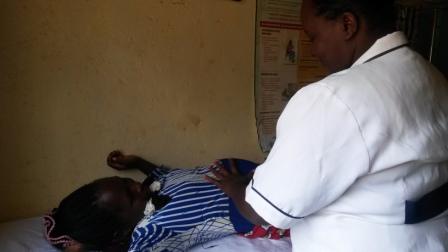A pregnant woman should seek immediate care if:
- She has sudden and new swelling in her face, hands, and eyes (some feet and ankle swelling is normal during pregnancy.)
- Blood pressure greater than 140/90.
- Sudden weight gain over 1 or 2 days
- Abdominal pain, especially in the upper right side
- Severe headaches
- A decrease in urine
- Blurry vision, flashing lights, and floaters
A pregnant woman can also have preeclampsia and not have any symptoms. This is why it is important for her to attend her antenatal clinics regularly for routine blood pressure checks and urine tests.
How Preeclampsia Affects the Mother and Baby
Preeclampsia can prevent the placenta from receiving enough blood, which can cause the baby to be born very small. It is also one of the leading causes of premature births, and the complications that can follow, including learning disabilities, epilepsy, cerebral palsy, hearing and vision problems.
In moms-to-be, preeclampsia can cause rare but serious complications that include:
- Stroke
- Seizure
- Water in the lungs
- Heart failure
- Reversible blindness
- Bleeding from the liver
- Bleeding after you’ve given birth
Preeclampsia can also cause the placenta to suddenly separate from the uterus, which is called placental abruption. This can cause stillbirth.
Continue Reading Next Page




































